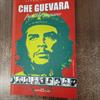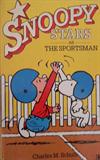
Casanova in Bolzano: A Novel
by Sandor Marai | Literature & Fiction | This book has not been rated.
ISBN: 0375413375 Global Overview for this book
ISBN: 0375413375 Global Overview for this book
1 journaler for this copy...
From The Washington Post's Book World/washingtonpost.com
Casanova in Bolzano is the fictional account of Casanova after an escape from jail in Venice, and the means by which Marai holds forth on just about everything important in human activity: love, honor, how to live, how to die, the importance of style and dignity, and, of course, the never-ending difficulties between men and women. And, as in any good novel, it is successful because its intriguing characters are in the midst of confronting one another.
The first of these is Casanova himself. When he arrives in Bolzano, he excites the citizens, who "understood, in short, that a genuine man was as unusual a phenomenon as a genuine woman. A man who is not trying to prove anything by raising his voice or rattling his sword, who does not crow, who asks no favors except those he himself can grant . . . because every nerve, every spark of his spirit and every muscle of his body, is devoted to the power that is life: that kind of man is indeed the rarest of creatures."
Casanova's first antagonist is the Duke of Parma, with whom he fought and lost a duel over a woman. Marai's great gift is his ability to demonstrate his characters' qualities rather than merely describe them. For instance, the duke's dignity is obvious in every aspect of his life, such as his style, how easy he is to anger, and in his devotion to his sense of right and wrong. With Marai's characters, the experience for the reader is almost extra-literary, or just plain real, in that you have the sense of being in the presence of someone you wouldn't want to offend.
Casanova's other antagonist is Francesca, the woman over whom he fought the duel. At the time of the duel she was just a girl of 15, but even then it was "as if she were saturated with light, so intensely did that sweet yet disturbing energy flow from her. . . . There was light in her, and when a man looked into her eyes . . . everything around him was brighter, more real, more substantially true." When Casanova returns, she is older, married to the Duke of Parma. She has learned to write and has been thinking about her feelings. When she hears that her lover is in town again, she sends him a note: "I must see you." Now Marai portrays Francesca as a woman, not a girl, furious at being in love and unable to do anything about it. This, and her vitality, make her a very dangerous woman indeed. The climax of the novel is the confrontation between Francesca and Casanova, in which it is unclear if she will dedicate her life to him or kill him. Marai presents this scene with a keen sense for drama, which he handles with a quality that verges on delight. You can almost see his wink at the reader, as though acknowledging the fun he is having.
Casanova in Bolzano is at once erotic in its texture and sense of longing, witty in its observation about the human condition and, on top of everything else, great fun to read. There are another 40 Marai books still imprisoned in Hungarian, but with any luck they will be liberated after all. I can hardly wait.
Casanova in Bolzano is the fictional account of Casanova after an escape from jail in Venice, and the means by which Marai holds forth on just about everything important in human activity: love, honor, how to live, how to die, the importance of style and dignity, and, of course, the never-ending difficulties between men and women. And, as in any good novel, it is successful because its intriguing characters are in the midst of confronting one another.
The first of these is Casanova himself. When he arrives in Bolzano, he excites the citizens, who "understood, in short, that a genuine man was as unusual a phenomenon as a genuine woman. A man who is not trying to prove anything by raising his voice or rattling his sword, who does not crow, who asks no favors except those he himself can grant . . . because every nerve, every spark of his spirit and every muscle of his body, is devoted to the power that is life: that kind of man is indeed the rarest of creatures."
Casanova's first antagonist is the Duke of Parma, with whom he fought and lost a duel over a woman. Marai's great gift is his ability to demonstrate his characters' qualities rather than merely describe them. For instance, the duke's dignity is obvious in every aspect of his life, such as his style, how easy he is to anger, and in his devotion to his sense of right and wrong. With Marai's characters, the experience for the reader is almost extra-literary, or just plain real, in that you have the sense of being in the presence of someone you wouldn't want to offend.
Casanova's other antagonist is Francesca, the woman over whom he fought the duel. At the time of the duel she was just a girl of 15, but even then it was "as if she were saturated with light, so intensely did that sweet yet disturbing energy flow from her. . . . There was light in her, and when a man looked into her eyes . . . everything around him was brighter, more real, more substantially true." When Casanova returns, she is older, married to the Duke of Parma. She has learned to write and has been thinking about her feelings. When she hears that her lover is in town again, she sends him a note: "I must see you." Now Marai portrays Francesca as a woman, not a girl, furious at being in love and unable to do anything about it. This, and her vitality, make her a very dangerous woman indeed. The climax of the novel is the confrontation between Francesca and Casanova, in which it is unclear if she will dedicate her life to him or kill him. Marai presents this scene with a keen sense for drama, which he handles with a quality that verges on delight. You can almost see his wink at the reader, as though acknowledging the fun he is having.
Casanova in Bolzano is at once erotic in its texture and sense of longing, witty in its observation about the human condition and, on top of everything else, great fun to read. There are another 40 Marai books still imprisoned in Hungarian, but with any luck they will be liberated after all. I can hardly wait.














